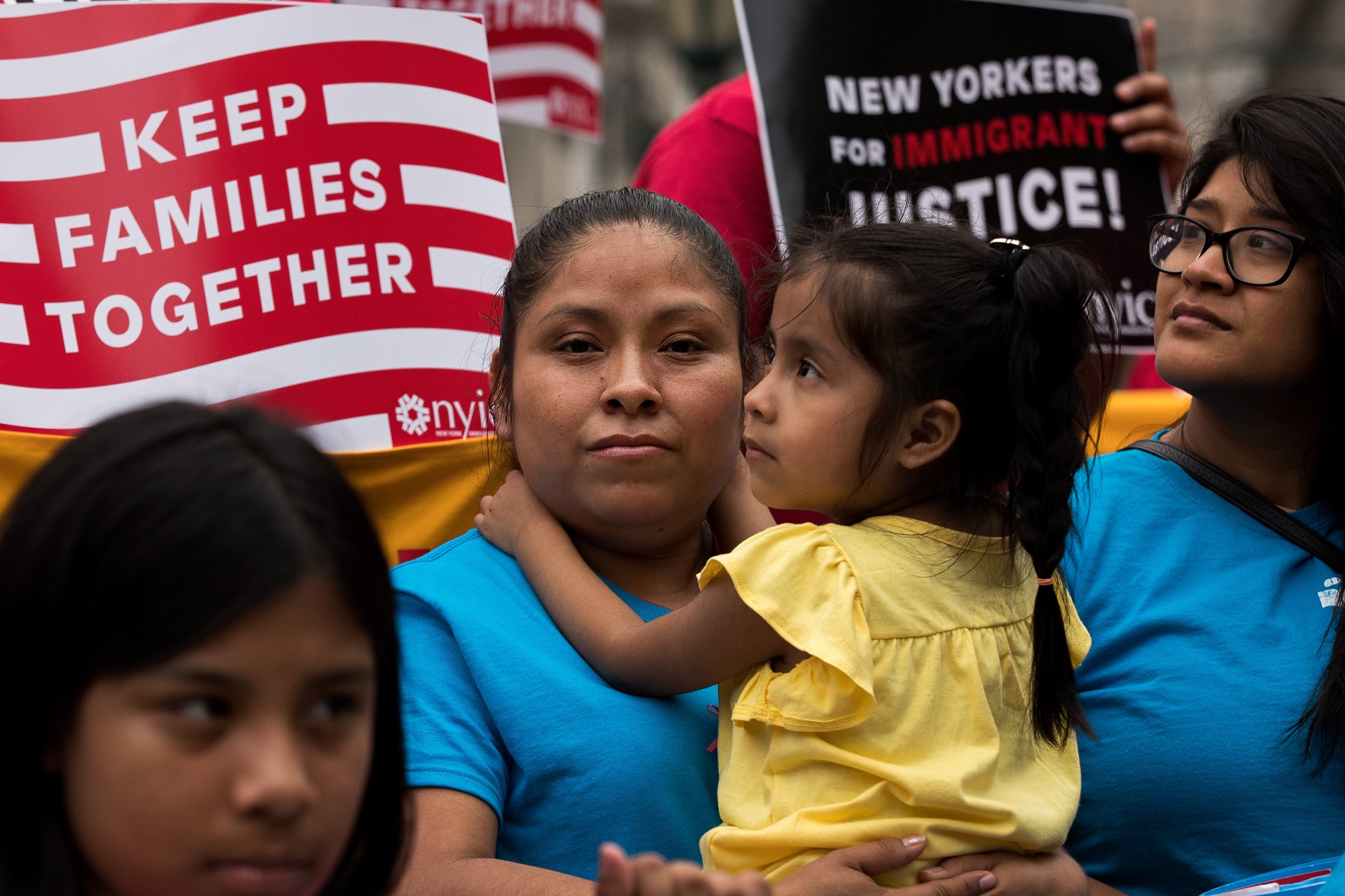
One of the reasons for the changing makeup of the U.S. population is that immigrant moms are having more kids and fewer kids are being born to American-born women. This is one of those facts that gets passed around a lot that also happens to be true. Three times as many kids were born to immigrant moms in 2014 (the last year for which figures are available) as in 1970. In that same period, the number of kids delivered by American-born moms has dropped 11%.
The new figures were published by Pew Research, which analyzed data from the National Center for Health Statistics and the American Community Survey. Much of the report confirms family formation trends that have been underway for several years and have changed much about America’s demographics. But beneath the numbers is a more complicated story. Women who weren’t born in the U.S. but have their kids here are not one size fits all, and public policy needs to reflect that.
Fewer immigrant moms are having kids before they’re married, for example, while the number of American-born women who are becoming single moms is rising. In all, 42% of babies born to American women in 2014 had dads who were not married to their moms, a family structure shared by only 33% of babies born to immigrant moms. Kids raised by single moms are much more likely to live in poverty than those raised by married parents, and to never climb far up the economic ladder.
Pew’s researchers unearthed several other interesting differences between moms who were born in the U.S. and those who weren’t, many of which challenge the stereotype of the immigrant family. Here are some statistics about immigrant families that the Pew report addresses:
FOREIGN-BORN MOMS HAVE MORE KIDS. This has been true for a while, even though all women are having fewer kids than they did in the 70s. In 2014, immigrant women between the ages of 15 and 44 had 44% more kids than American born women of the same age. Of course, many more kids are born to American moms in total, because there are many more American moms out there. But on average, immigrant families bear more children.
FOREIGN-BORN MOMS HAVE THEIR KIDS AT OLDER AGES. An American-born mom is more likely to be a teenager than a foreign mom. Teen pregnancies have been dropping across the board in recent years, and just 6% of new moms were teenagers in 2014. But only 2% of foreign-born moms were that young. In fact, foreign-born moms are much likelier to be older than 35 when they have their kids. American-born moms don’t wait as long; they’re only half as likely to be that age.
FOREIGN-BORN MOMS ARE NOT RUSHING TO HAVE AMERICAN BABIES. Most of the immigrant moms are not newly arrived. Half of the immigrants who had kids in 2014 have lived in the U.S. for 11 years or more and more than 75% of them have lived in the U.S. for at least six years. About 7% of babies born in the U.S. in 2014 had unauthorized immigrants for parents. Those kids represent slightly less than a third of all babies born to immigrants.
FOREIGN-BORN MOTHERS HAVE VARYING LEVELS OF EDUCATION. While mothers who were born overseas are more likely to lack a high school diploma than U.S. born moms, they are only slightly less likely to have graduated college. “Some 29% of foreign-born new mothers have earned at least a bachelor’s degree, as have 31% of U.S.-born new mothers,” says the study. A full 87% of Indian women who had kids in the U.S. between 2011 and 2014 have college degrees, the highest of any ethnicity, followed by Chinese (60%), Vietnamese (52%) and Filipino moms (33%).
MOST BABIES BORN TO FOREIGN-BORN MOMS ARE MEXICAN. Of all the kids born in the U.S. in 2014, 7% of them had Mexican moms. That’s 32% of all immigrant babies, which is actually a drop from prior years (in 2005 it was 45%), because Mexican moms still outnumber their immigrant counterparts by far. “Births to Mexican-born women in 2014” says the study, “outnumbered all births to women from Asia, Europe, North America and Oceania combined.”
IMMIGRANT HOUSEHOLDS ARE NOT ALL FINANCIALLY NEEDY. Indian moms (1%) are least likely of any demographic group to be single or living in poverty. Honduran moms were most likely to be single. About two thirds of the kids born to Honduran moms in 2014 had unmarried parents. Honduran moms are also most likely to be poor and least likely to have a college degree.
More Must-Reads from TIME
- Donald Trump Is TIME's 2024 Person of the Year
- Why We Chose Trump as Person of the Year
- Is Intermittent Fasting Good or Bad for You?
- The 100 Must-Read Books of 2024
- The 20 Best Christmas TV Episodes
- Column: If Optimism Feels Ridiculous Now, Try Hope
- The Future of Climate Action Is Trade Policy
- Merle Bombardieri Is Helping People Make the Baby Decision
Contact us at letters@time.com